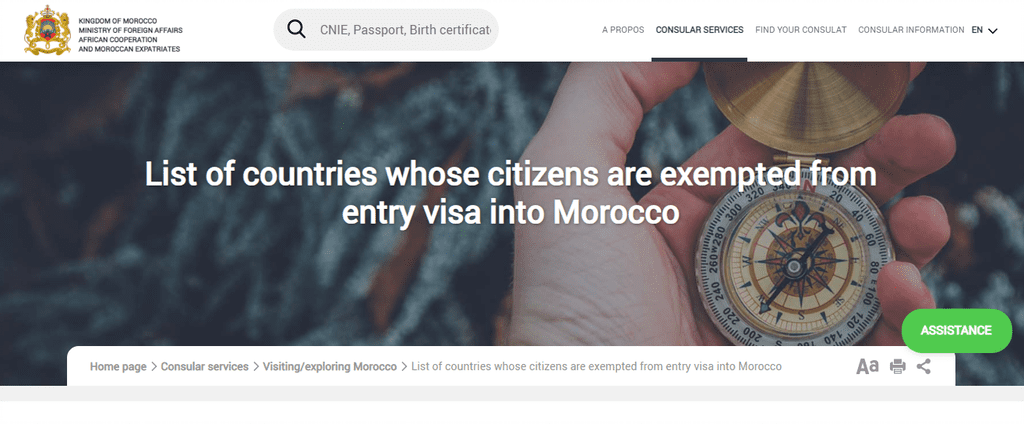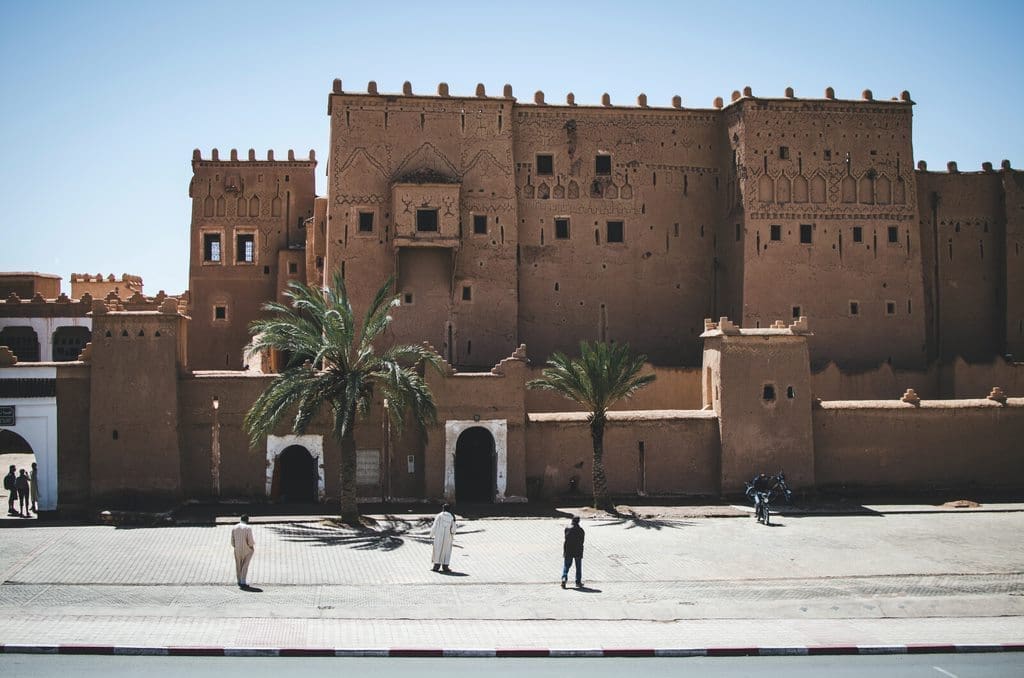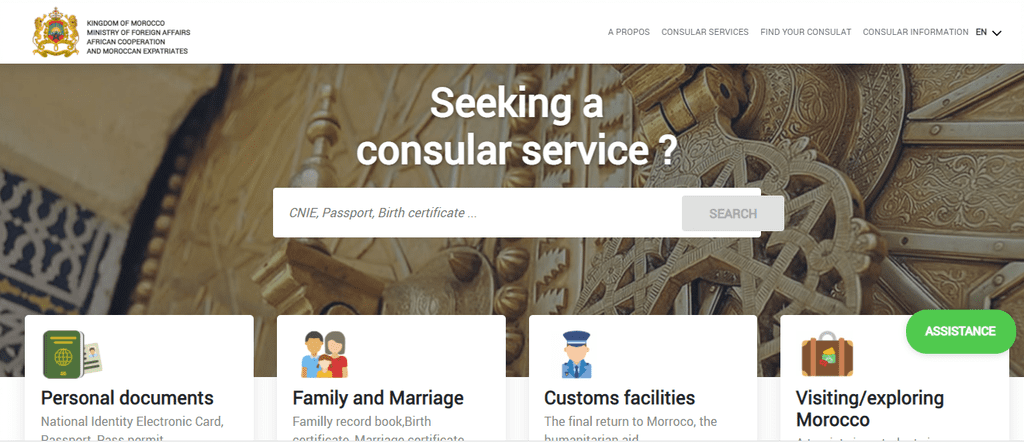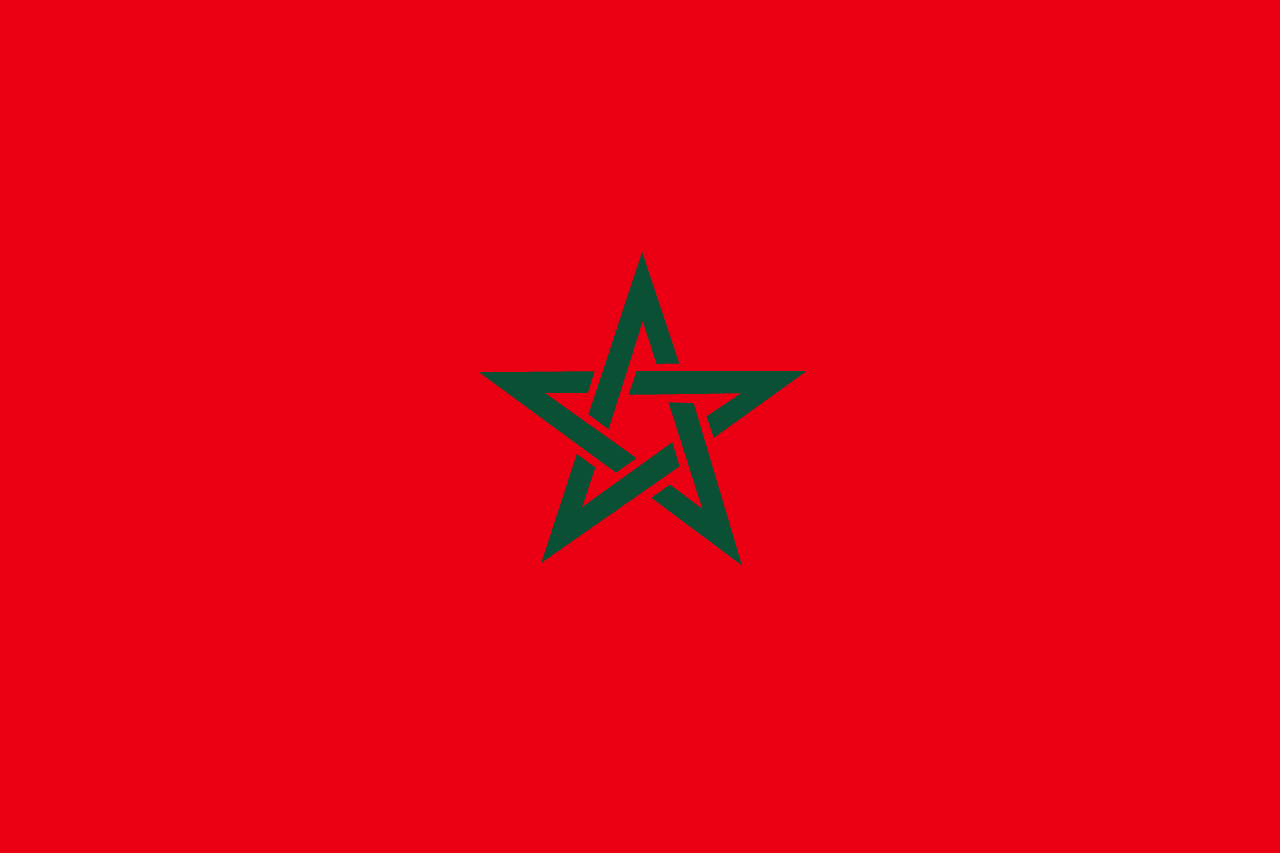Meet Morocco
Morocco is a beautiful country in North Africa with amazing people and exciting cities with rich culture, gorgeous coastlines, mouth-watering cuisines, and lots more. Morocco has a place for foodies, tourists, students, and those in search of some adventure. Let us journey our way through the procedures and documents required to obtain a Morocco visa.
Do you need one?
It is possible to visit Morocco without a visa. There are a couple of countries that benefit from Visa exemption. Citizens of these countries do not need to obtain a visa before they can visit Morrocco. On the list of exempted countries, we have the EU, the U.S, Japan, and a host of others.
For a list of all exempted countries, click here.

Citizens benefiting from exemption can stay in Morocco for 90days without a visa except for Hong Kong and Hungary nationals which are only allowed to stay in Morocco for 30days.
If your country isn’t on the exempted list, the following headings will guide you through the Morocco visa application process.
Morocco Visa Types Available
This is further divided into two categories based on the validity period and purpose of the visit. They are as follows:
Based on the Validity Period
In this category, four visa types are available to choose from. They are:
Visa for short-stay
With this visa type in hand, you can live and move freely in Morocco for 90 days. You can choose to have single or multiple entry access to Morocco with this visa.
Visa for long-stay
A foreigner with a long-stay permit can have multiple entries into Morocco within one year. The time allocated for each visit not exceeding three months.
However, suppose a visitor desires an extended stay exceeding the allocated three months duration. In that case, he/she is required to visit the relevant authorities in the Moroccan state to obtain a residence card.
Visa for crossing (Transit)
With this permit, one can make a brief stop at Morocco (not exceeding 72hrs) before traveling to another country.
Permit issued at the port of entry
Security officials stationed at ports of entry may grant travelers transit or short-term permits on some rare occasions.
Ordinary visas
Travel permits that fall under this category are issued based on a certain purpose of visit. Note that these ordinary visas fall under the types of long or short validity visas, depending on your purpose of visit. They are as follows:
- Tourist
- Work
- Visitor
- Medical stay
- Student, Trainee, Researcher
- Journalism
- Attending sports events
- Attending conference and others.
Relevant Paperwork Needed
The paperwork outlined below are necessary to obtain a successful result:
- An Application Form
Without this document, there is no application. You can obtain a copy of this document at a Moroccan embassy/consulate, or you can download it online from the Moroccan foreign affairs website here. All mandatory fields must be filled with the appropriate information.
- National Passport
It is pertinent that you submit a valid passport along with accompanying documents. The visa, when issued, will be affixed to the passport. Hence, your passport should have at least one blank page. Additionally, the validity of at least six months is required.
- Photographs
You are required to provide four recent passport-sized photos. These photos must be colored, and the setting of the image should be plain (preferably light grey or light blue). The use of glasses and other accessories that may cover the face is not allowed, and the image print must be of good quality. The size of the image should be 35mm × 45mm.
- Proof of Return
It is necessary that you a return flight ticket. This gives the officials at the consulate some assurance that you plan to return to your country or the third state after your visit to Morocco.
- Evidence of Secured Accommodation
Another requirement for a Morocco visa is proof of accommodation. It would help if you had a place you will stay during your entire stay in the country. This can be in the form of hotel reservations. If you were invited by a national in Morocco, a letter of invitation must be attached.
- Proof of Means of Sustenance
Your bank statement or a letter from a sponsor is required. This informs the officials at the embassy/consulate on how you hope to take care of your financial needs during your stay in the country.
- Health Insurance
You are advised to get health insurance coverage for your travel. This will come in handy in cases of unforeseen health challenges during your stay in the country.
- Payment of Processing Fees
It is required that you provide proof of payment for processing. Whether you paid with cash at the consulate or you made a bank transfer online, the receipt of the transaction is needed.

Specific requirements:
Depending on your purpose of visit and the amount of time you hope to spend in the country, you may be required to bring additional documents for your application.
For business visits:
- Provide an invitation letter from the legitimate company in Morocco you will be visiting
- If you are visiting for public business. A letter of recommendation is required from the right Ministry
For work:
- Provide copies of employment letter/contract which is authenticated by the Ministry of Education.
For medical treatment:
- Proof of acceptance to a hospital in Morocco
- Provide proof that you can pay medical bills
- Provide medical certificate
For journalism work:
- Make a list of equipment that will be used during the course of the work.
- Must obtain approval from the government agency handling Communication.
- Obtain approval from the International Cooperation and the Ministry of Foreign Affairs.
For conference:
- Provide an invitation from the organizers of the event.
- If you are a government worker, you are to provide a Mission Order.
For educational purposes:
- Provide a document showing you have been enrolled in an educational institute in Morocco
- Receipts for tuition fee payment
- Proof of sustenance during the period of study. Or,
- They will need a letter from a sponsor stating your accommodation and other financial expenses.
For long-stay visas:
- Provide means for accommodation covering your entire stay in the country
- Provide your criminal records from relevant authorities from your country of residence
- A heath certificate, showing you’re fit medically.
For a family reunion:
- Provide evidence that you are related. For spouses, a marriage certificate is required. While birth certificates are required for the parent-child relationship.
For cultural or sports events:
- Obtain a letter of invitation from the Moroccan sector in charge of the event.
- For private events, the appropriate Moroccan Ministry must be in support of the invitation.
Amounts chargeable
To complete the request process, certain fees are to be paid by the applicant. Based on your country of residence, the channels through which fees are paid may differ; it could be done in cash or online visa transactions. Listed below are the costs of visas:
- Fee for two entries (less than 3months); DH330 (approximately $37.14)
- For one entry (less than 3months); DH220 (approximately $24.76)
- Fee for transit visa; DH170 (approximately $19.13)
General Application Steps
Outlined below are general steps for the application process. It should be noted that the processes involved may change due to the diplomatic mission in charge of the process.
- Contact a Morocco embassy or diplomatic mission in your country of residence to book an appointment.
- Obtain the visa application and fill it appropriately.
- All required paperwork (documents) should be made available.
- The application form and accompanying documents are submitted at the embassy.
- Pay the stated fees for processing.
- Wait patiently for the visa to be processed.
- Pick up the visa.
Covid-19 Travel Guidelines for Morocco
Due to the Coronavirus pandemic, travel to Morocco has been restricted. Only Citizens are allowed to return to the country at the moment. All tourist activities are on hold for now. Also, transit flights to Morocco are not permitted.
If you exhibit symptoms of the virus, a citizen returning home will be quarantined at government facilities.
Questions often Asked by Intending Travellers
What can I do to extend my visit?
You can extend your stay in Morocco in Morocco beyond 90days if you apply for a Visa Extension at a police station in Morocco nearest to you.
No Moroccan embassy in my country, what can I do?
In a situation there is no diplomatic representation in your country of residence, you should find out if the Moroccan government has channeled all its visa applications through another embassy in your country or a company that handles visa applications.
However, if this isn’t also available in your country, then you can send your application directly to the Moroccan Foreign Affairs and International Cooperation. If your application is approved, your visa will be mailed to you to be printed at the airport.

Can I apply when I arrive?
Morocco does not offer this option. Only citizens of visa-exempt nations can travel to the country without applying for a visa beforehand.
How long is the visa valid for?
A maximum validity period of three months (90 days) is offered. However, if you hold a long-stay visa, you can request a residence permit to extend your stay in Morocco.


